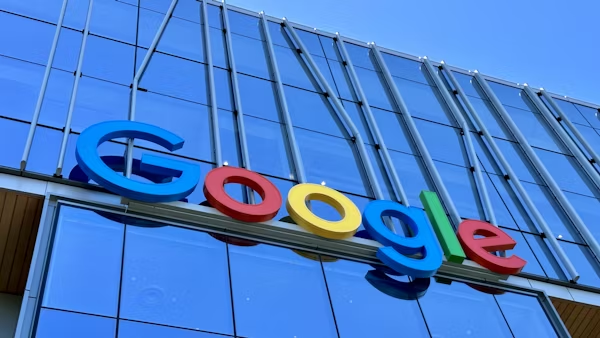The technology giant Alphabet, owner of Google, has announced a £5bn ($6.8bn) investment in artificial intelligence in the UK. The money will go into infrastructure and scientific research over the next two years. It marks the first in a series of large US investments revealed shortly before President Donald Trump’s state visit.
Alphabet highlights opportunities in UK science
Ruth Porat, president and chief investment officer of Alphabet, said there were “profound opportunities in the UK” for its “pioneering work in advanced science.” She explained this during an exclusive interview with a British broadcaster. On Tuesday, Alphabet will officially open a $1bn (£735m) data centre in Waltham Cross, Hertfordshire, alongside Chancellor Rachel Reeves. The new investment will expand this site and also support DeepMind in London. DeepMind, led by Nobel Prize winner Sir Demis Hassabis, uses AI to drive breakthroughs in advanced scientific research.
A new US-UK technology relationship
Porat stressed that a “special technology relationship” now existed between the US and the UK. She said risks had to be managed together, but opportunities in economic growth, social services, and science were enormous. She highlighted the government’s AI Opportunities Action Plan as crucial but insisted “there’s still work to be done to land that.” Capturing the benefits of the AI boom, she warned, “was not a foregone conclusion.” Reeves welcomed the announcement, calling it “a powerful vote of confidence in the UK economy” and a sign of “the strength of our partnership with the US.”
Tensions over digital tax fade in the background
The US administration had pushed the UK this year to soften its Digital Services Tax on companies such as Google. However, the issue is not expected to feature in this week’s announcements. More multi-billion-dollar investments from US corporations are expected within 24 hours. Analysts said the pound strengthened, supported by expectations of interest rate changes and incoming American investment.
Google joins $3 trillion technology club
Alphabet reached a market value of over $3 trillion on Monday. It became the fourth company ever to pass the mark, alongside Nvidia, Microsoft, and Apple. Google’s share price rose strongly in the past month after US courts declined to order the company’s breakup. Chief executive Sundar Pichai had repositioned Google as an “AI First” business. Porat said “it’s that performance which has resulted in that metric.” Until recently, Google appeared to trail behind younger rivals such as OpenAI, despite pioneering much of the core research behind large language models.
Balancing AI growth with environmental concerns
Data centres worldwide have sparked concerns over their energy consumption and environmental impact. Porat said the new UK facility would use air-cooling instead of water and capture heat to warm homes and schools. Google has also signed a deal with Shell to provide “95% carbon-free energy” for its UK operations. In the US, the Trump administration argued that AI power demands could justify a return to carbon-intensive energy sources. Porat countered that Google remained committed to renewable energy. Still, she acknowledged “wind doesn’t blow and the sun doesn’t shine every hour of the day.” She explained that energy efficiency was being built into AI chips, models, and data centres. Modernising the electricity grid was essential to balance periods of excess capacity, she added.
Preparing for the AI jobs challenge
Asked about fears of an AI-driven jobs crisis among graduates, Porat said the company spent “a lot of time” addressing the employment challenge. She admitted it would be “naive to assume there isn’t a downside.” If businesses only used AI for efficiency, she warned, “we’re not going to see the upside for the UK economy or any economy.” Yet she stressed that new industries were emerging, opening opportunities in areas such as nursing and radiology. “AI is collaborating with people rather than replacing them,” she said. Porat added: “Each one of us needs to start using AI to see how it assists in our work, instead of fearing it and watching from the sidelines.”


